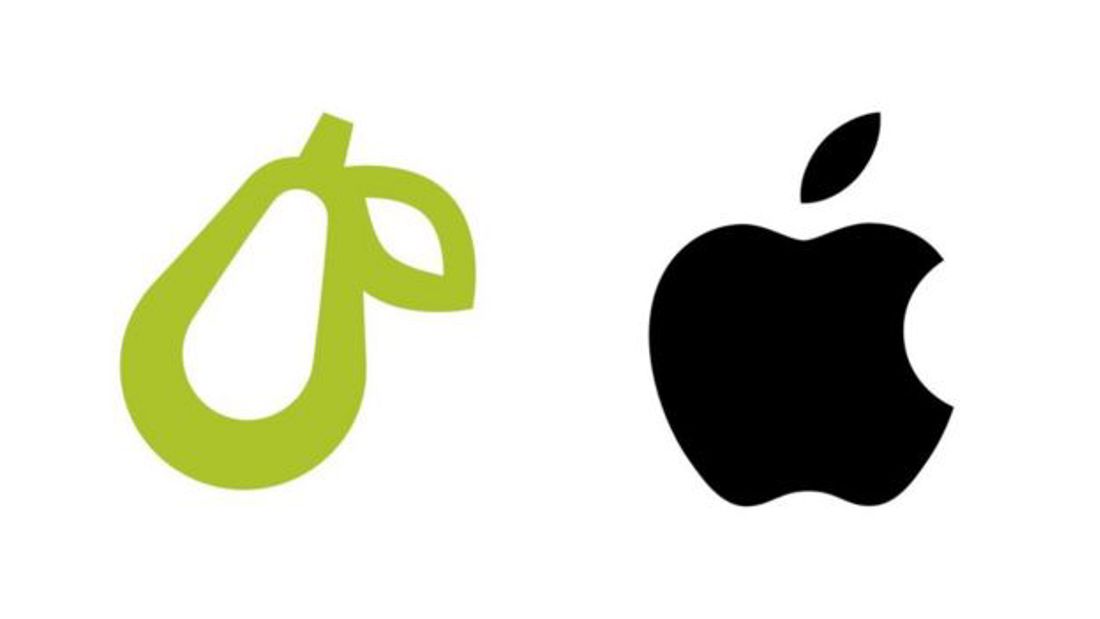The David vs Goliath battle began when Apple tried to stop Prepear from trademarking a pear logo, claiming it was too similar to its own. Angered by Apple’s stance, Prepear launched a petition to stop Apple from pursuing the legal action and prevent the company from undertaking similar complaints in the future.
Apple vs Prepear: How it happened
When small business owner Natalie Monson filed a trademark application on behalf of her recipe and meal planning app, Prepear, she had no idea of the legal fight that would quickly ensue.
The small business owner was faced with a notice of opposition from tech giant Apple, because the company believed Monson’s logo to be too similar to its own. Apple’s complaint to the US patent and trademark office cited concerns over the pear logo hurting its brand, due to its similarities with the company’s world famous apple logo.

Apple’s filing noted that the pear logo being used by Prepear "consists of a minimalistic fruit design with a right-angled leaf, which readily calls to mind Apple's famous Apple Logo and creates a similar commercial impression, as shown in the following side-by-side comparison.” Regulators were therefore asked to reject the trademark application.
While Apple is, primarily, a technology and software company, its legal team argued that the brand’s minimalist logo is so recognisable that consumers may see the Prepear logo and immediately associate it with Apple.
Apple’s statement said that as the company has “services related to computer software, as well as healthcare, nutrition, general wellness, and social networking” consumers could mistakenly believe the recipe planning service was one of its new apps.
Why this case matters
The legal battle that Prepear has on its hands is an extreme example of what can happen when small businesses come up against far more powerful brands. While many companies believe themselves to be immune from the threat of IP disputes, this is rarely the case.
When considering the risks posed by IP disputes, companies tend to focus exclusively on competitors within their industry. But the case of Apple vs Prepear shows that cases can easily be brought by those outside of a company’s sector. It’s therefore incredibly difficult for brands to predict every single IP risk that might be out there.
Cost is another important factor in IP disputes. Small businesses like Prepear have just a fraction of the resources of some of their much larger counterparts, meaning that when an IP case does emerge, they are often not in a position to defend themselves. In fact, many small companies whose logos were deemed too similar to Apple’s have already been forced to stop using logos and foot the bill of a complete redesign.
Legal disputes are often very harmful to a company’s reputation, and this can have an impact no matter who is in the right, and who is in the wrong. If a dispute is ongoing, consumers can be quite reluctant to spend money with a company due to worries about its future. Similarly, partner brands and wholesale contacts are often hesitant to work with a company undergoing a dispute with an established brand.
IP infringement litigation is another risk to organisations and infringement allegations can sometimes arise following an IP opposition. The cost of IP litigation can be considerable, and for small businesses the spiraling costs of a legal dispute can become seriously problematic. Many simply do not have the resources to fight legal battles with brands that have far greater resources at their disposal. But smaller companies are far from powerless when it comes to issues relating to IP. They just need to take steps to protect their brand, products and services from IP complaints before any problems arise.
How can brands protect themselves?
IP insurance enables companies of all sizes to defend themselves from any claims of IP infringement. These policies can also help brands pursue other companies that might be infringing on patents, copyrighted materials or trademarks.
Find out more about our IP insurance policies or get in touch to discuss IP policies with our team.



